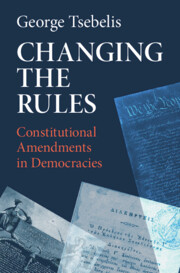Changing the Rules
Changing the Rules enters into the debate between theoretical analyses of constitutional amendment provisions (considered the most important part of a constitution) and empirical research (which argues that amendment provisions have little or no significance). George Tsebelis demonstrates how strict provisions are a necessary condition for amendments to have low frequency and significance and provides empirical evidence from case studies and over 100 democracies to corroborate this claim. Examining various cultural theories that dispute these findings, Tsebelis explains why their conclusions have weak foundations. He argues that constitutional rigidity is also a necessary condition for judicial independence and provides theoretical argument and empirical evidence. Tsebelis also establishes a negative correlation between the length of a constitution and problematic indicators such as time inconsistency, low GDP/capita, high corruption, inequality, and lack of innovation. This title is also available as Open Access on Cambridge Core.
George Tsebelis is the Anatol Rapoport Collegiate Professor of Political Science at the University of Michigan, where he works on political institutions. He is a member of the American Academy of Arts and Sciences and has received honorary degrees from the Universities of Athens, Crete and Milan. He is the author of (among other books) Nested Games: Rational Choice in Comparative Politics and Veto Players: How Political Institutions Work.

